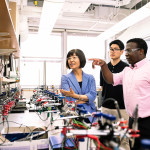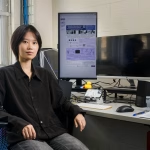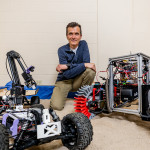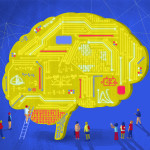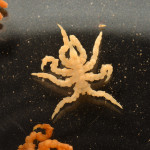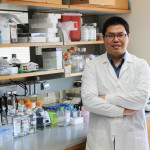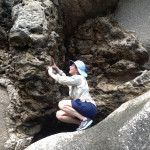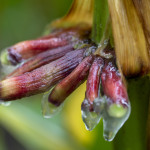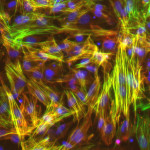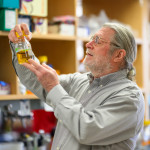Category Science & Technology
Recycling lithium from old electric vehicle batteries could be done cheaply with new electrochemical process
A group of UW–Madison chemists are hopeful they've found a solution, and they're already filing patents and courting global carmakers.
UW–Madison researchers expose how automation apps can spy — and how to detect it
A team of engineers and computer scientists has identified vulnerabilities in popular automation apps that can make it easy for an abuser to stalk individuals, track their cellphone activity or even control their devices.
The Sky’s the Limit: Autistic youth explore science on their terms at STEM camp
Only three summer camps in the country give neurodivergent youth free access to science summer camps with programming tailored to their learning needs, and they’re all in Wisconsin. Due to cuts in funding from the National Science Foundation, this will likely be the last summer for the camps.
Robotic space rovers keep getting stuck. UW engineers have figured out why.
The researchers’ discovery resulted from their work on a NASA-funded project to simulate the VIPER rover, which had been planned for a lunar mission.
Quantum Leaps in Education
Artificial intelligence is here to stay. Here's how UW–Madison students are grappling with its promise — and perils.
Meet the ‘weird’ sea spider that’s mapping the evolution of eight-legged creatures
UW–Madison researchers and their international colleagues have published the first high-quality genome of a sea spider species, providing a key reference point for the evolutionary traits of many related animals.
UW professor emeritus who paved the way for at-home colon cancer testing and other screenings earns national recognition
Earlier this month, the Bayh-Dole Coalition awarded James Dahlberg the American Innovator Award, recognizing his commitment to advancing federally funded inventions from the laboratory to real-world applications.
UW–Madison physicists play key role in international observatory
Physics professor Keith Bechtol and his research group have been key players in bringing the Vera C. Rubin Observatory in Chile to the main stage. Now its state-of-the-art telescope has started taking its first images of the night sky.
Fossil corals point to possibly steeper sea level rise under a warming world
Newly uncovered evidence from fossil corals found on an island chain in the Indian Ocean suggests that sea levels could rise even more steeply in our warming world than previously thought.
Measuring gases around young stars, astronomers unlock major clues to planet formation
UW–Madison astronomers and international collaborators have produced the most accurate measurement of the gases swirling around young stars and their changing mass over time. The discovery offers clues to how different types of planets form.
UW innovations are helping farmers produce crops with less fertilizer. A pause in federal funds is threatening the research.
Thanks to federal support, UW researchers are engineering beneficial bacteria and breeding more-resilient crops with the aim to minimize farmers’ reliance on synthetic fertilizers, increase their cost savings and help protect the environment.
Flying High, Virtually
There’s a growing student interest in aerospace engineering, as well as strong career prospects in the aerospace industry. Enter: A state-of-the-art flight simulator, housed in the College of Engineering’s Flight Simulator Laboratory.
UW–Madison researchers find hidden genetic clues upping cardiovascular disease risk
Understanding how the change in the genome increases risk for CAD is a step toward potentially preventing its damaging effects and perhaps one day developing therapeutic strategies to block the risky changes in arteries.
Computer Sciences capstone prepares to scale experiential learning for students
It’s March 10, and mid-semester presentations are underway in the Computer Sciences capstone course. Dressed in textbook business casual, senior Bill Zhu is addressing 100…
UW Tech Exploration Lab student projects highlight innovation, emerging technologies
Bold ideas, creative problem solving and community impact were at the heart of 24 student projects launched this past semester at the Tech Exploration Lab.
The real costs of research funding cuts
UW–Madison could lose tens of millions of dollars in annual research support due to a proposed change in federal funding. But what’s really at stake? The university’s ability to advance life-saving research and innovation.
UW biochemists engineered a poplar tree that produces a high-demand industrial chemical. It was a surprise discovery only made possible by sustained investment in research.
Professor Brian Fox has engineered a genetic alteration to poplar trees to help them produce an industrial chemical commonly used as a preservative and an ingredient for synthetic fibers.


